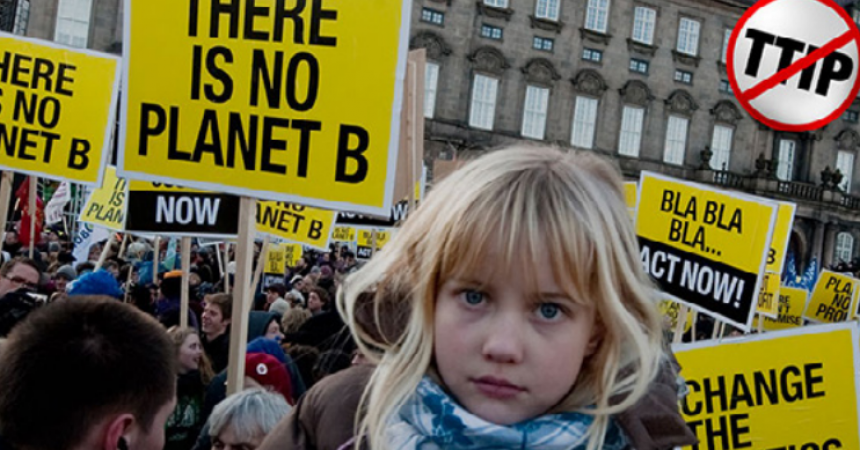
The fight is heating up over the Transatlantic Trade and Investment Partnership (TTIP), the controversial trade deal being negotiated by the EU and US behind closed doors. As more and more Europeans learn of the threat that TTIP poses to jobs, public services, food safety, the environment and democracy itself, the mass campaign against it is building momentum. The forces promoting TTIP are under attack and in retreat.
The European Parliament was asked to pass a pro-TTIP resolution on 10 June that would have given the EU trade commissioner Cecilia Malmström a major boost in her efforts to complete the deal. Along with other civil society representatives from across Europe, I travelled to Strasbourg in order to remind MEPs that over two million people have now signed a European Citizens' Initiative rejecting TTIP and the parallel EU-Canada deal, CETA. If MEPs wished to maintain any credibility, we told them, they must vote against the resolution. The people of Europe would be watching.
The pressure was effective. The German social democrats who control the parliament (and support TTIP) were so rattled that they cancelled the vote at the last minute. They then allowed an 8am motion to go through from the parliament's conservative group blocking any further debate on TTIP, even before some MEPs had realised such a motion had been presented. This was supposed to be the first resolution in support of TTIP from the new European Parliament elected in 2014. The fact that neither the vote nor the debate could take place is a blow to the legitimacy of the TTIP project, and to the credibility of the EU's free trade agenda.
Political crisis
The parliament was abuzz with questions as to why its president, Martin Schulz of Germany's social democratic party, had taken the decision to stop the vote from going ahead. The official reason given (that the number of amendments made it too complex) was dismissed by all sides as an obvious smokescreen, as the parliamentary procedures were perfectly capable of dealing with the vote. In reality, as most media reports concurred, the social democrats are in crisis over their support for TTIP, and deeply divided over the inclusion of an investor-state dispute settlement (ISDS) mechanism that would allow US corporations to sue EU member states for loss of profits resulting from public policy measures that might affect their bottom line.
ISDS has become the lightning rod for the current wave of protest against TTIP, even though many of the agreement's other elements are equally dangerous. MEPs have come under intense pressure from civil society to speak out against the inclusion of any ISDS mechanism in the deal, including the 'new' version of ISDS proposed by the trade commissioner with its minimal, cosmetic reforms. Social democrat MEPs have come under particular attack for backing a deal that might still include ISDS, and several of them have committed themselves publicly to voting against TTIP in the final analysis if it grants such powers to transnational corporations.







